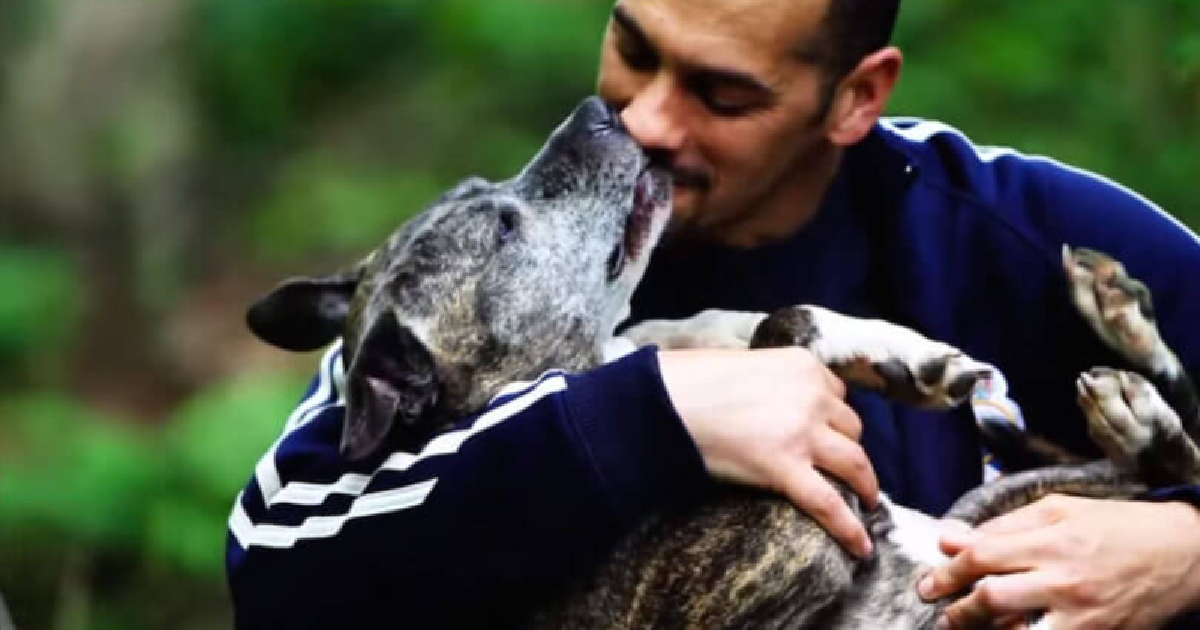When it comes to dog breeds, intelligence is a trait that many owners value. If you’re considering adding a Samoyed to your family, you might be wondering just how smart these fluffy companions are. Well, you’re in the right place! In this article, I’ll delve into the intelligence of Samoyeds, shedding light on their cognitive abilities, problem-solving skills, and overall intelligence ranking among dog breeds.
Are Samoyeds Smart?
- Samoyeds are considered intelligent dogs, but individual intelligence can vary.
- Their history as working dogs has shaped their problem-solving skills and independent thinking.
- Socialization and training are essential to guide their intelligence in a positive direction.
- While intelligence is important, it’s just one aspect of a dog’s overall nature.
- Evaluate a Samoyed’s intelligence based on their unique abilities and characteristics.
Samoyed Personality and Characteristics
Samoyeds are renowned for their distinct personality and unique set of characteristics. They possess a combination of alertness, expressiveness, and intelligence that sets them apart from other breeds. Along with their charming appearance, Samoyeds are known for their friendly and joyful nature.
One notable characteristic of Samoyeds is their famous “Sammy Smile.” This refers to the upward curling of their lips, which gives them a perpetually happy and smiling expression. This endearing trait adds to their overall appeal and contributes to their reputation as a highly expressive breed.
Intelligence is another key aspect of a Samoyed’s personality. They rank among the intelligent dog breeds, making them naturally driven and capable of learning quickly. However, their intelligence can be challenging for owners as they have a strong independent streak. Historically, Samoyeds were bred to work autonomously, making decisions on their own. This independent nature requires an owner who can understand and respect their intelligence, providing the necessary guidance and boundaries.
Training and socialization play vital roles in bringing out the best in Samoyeds. Through positive reinforcement methods, their intelligence can be harnessed and directed in a positive and constructive manner. Training sessions should focus on mental stimulation and providing tasks or jobs to keep their active minds engaged while forging a strong bond between owner and dog.
Samoyeds possess a captivating personality characterized by alertness, expressiveness, and intelligence. Their joyful nature, coupled with their famous “Sammy Smile,” makes them a delightful breed to be around. However, their intelligence requires proper training and socialization to unleash their full potential and maintain a positive and harmonious relationship.
| Samoyed Personality Traits | Description |
|---|---|
| Alertness | Samoyeds are highly alert, always aware of their surroundings, and ready to respond if anything catches their attention. |
| Expressiveness | The “Sammy Smile” is a clear display of their expressive nature. They use their facial expressions to communicate their emotions. |
| Intelligence | Ranked among intelligent dog breeds, Samoyeds possess a sharp mind and are quick learners. However, their independent streak can pose a training challenge. |
| Joyful Nature | Samoyeds are naturally happy dogs, bringing joy and happiness to their owners. Their playful and friendly temperament adds to their appeal as family pets. |
| Affectionate | Samoyeds are known for their affectionate nature and love being a part of the family. They thrive on human companionship and enjoy close bonds with their owners. |
Samoyed Breed History and Heritage
The Samoyed breed has a rich history that can be traced back thousands of years. These magnificent dogs were originally bred by the Nenets people in northern Eurasia, who relied on them for their exceptional working abilities. Used as herding dogs on the harsh Russian tundra, Samoyeds played a crucial role in the daily lives of the Nenets people.
Their working heritage required Samoyeds to perform a variety of tasks. They had to make independent decisions, gain the trust of reindeer, protect them from wolves, and efficiently herd them back to their human companions. This demanding job not only required physical strength and stamina but also intelligence and reasoning skills. The Samoyeds’ ability to work independently and think for themselves set them apart from other breeds.

Today, Samoyeds are a living testament to their ancient working heritage. Despite the passage of time, they still retain the intelligence and character that made them invaluable working dogs. This heritage has shaped their temperament and working instincts, as well as their strong bond with humans. Samoyeds are known for their loyalty, dependability, and ability to adapt to various environments.
| Key Points | Details |
|---|---|
| Origin | Northern Eurasia |
| Working Purpose | Herding and breeding domestic reindeer |
| Required Skills | Independent decision-making, gaining trust, protection, herding |
| Working Environment | Russian tundra |
Samoyed Coat and Grooming Needs
One of the defining features of Samoyeds is their magnificent double coat, which comes in white, cream, or biscuit colors. Their coat is medium in length and has a beautiful silver sheen. However, it’s important to note that Samoyeds are not hypoallergenic and do shed. They “blow” or shed their undercoat twice a year, which requires regular grooming to keep their coat in good condition.
Daily brushing is recommended, especially during shedding seasons, to prevent mats and tangles. Additionally, Samoyeds have weather-resistant coats that repel dirt, making them relatively easy to clean.
| Grooming Needs | Frequency |
|---|---|
| Brushing | Daily, especially during shedding seasons |
| Bathing | As needed, typically every 6-8 weeks |
| Nail Trimming | Once a month, or as needed |
| Ear Cleaning | Weekly, or as needed |
| Teeth Brushing | At least 2-3 times a week, or daily if possible |
Samoyed Energy and Exercise Needs
Samoyeds are known for their abundance of energy and require regular exercise to keep them happy and healthy. As an active breed, they thrive on physical activity and mental stimulation. Daily exercise is essential to help them release their energy and prevent behavioral issues that can arise from boredom or pent-up energy.
One of the best ways to provide exercise for a Samoyed is through daily walks. Taking them for a brisk walk not only helps them burn off energy but also gives them the opportunity to explore their surroundings and engage their senses. A longer walk in the morning or evening can be particularly beneficial in meeting their exercise needs.
In addition to walks, Samoyeds enjoy playtime with their owners. Whether it’s a game of fetch in the backyard or a session of tug-of-war, interactive play helps stimulate their minds and keep them physically active. It’s important to engage in play activities that encourage their natural instincts, such as retrieving and herding.

Samoyeds are also well-suited for participating in various activities and sports that make use of their intelligence and physical abilities. They excel in obedience training, agility courses, herding trials, and weight pulling competitions. These activities not only provide them with exercise but also challenge their minds, satisfying their need for mental stimulation.
It’s worth noting that Samoyeds have a high tolerance for cold weather and are particularly fond of snow. Many enjoy activities like sledding and swimming, making them great companions for outdoor adventures in colder climates. Just be sure to monitor their activity levels and provide appropriate protection in extreme weather conditions.
To summarize, Samoyeds are active dogs that require regular exercise to keep them physically and mentally fit. Daily walks, playtime, and engaging in activities that tap into their intelligence and instincts are essential for their well-being. Providing them with sufficient exercise not only contributes to their overall health but also helps prevent potential behavioral issues caused by unspent energy.
Samoyed Socialization and Training
Proper socialization and training are crucial for Samoyeds to become well-adjusted members of the family. Samoyeds are naturally social dogs and usually get along well with other dogs, pets, and people. However, it’s important to start socializing them from a young age to ensure they develop appropriate behaviors and manners.
Due to their herding instincts, Samoyeds may have a tendency to chase or nip. Through early training and socialization, they can learn to channel their energy in a positive way and exhibit appropriate behavior. It’s essential to expose them to various environments, people, and situations to build their confidence and reduce any potential anxiety or fearfulness.
Samoyeds are highly intelligent dogs and thrive on mental stimulation. They enjoy having jobs or tasks to do, as it gives them a sense of purpose and fulfillment. Incorporating training sessions into their daily routine will not only provide mental exercise but also strengthen the bond between you and your Samoyed.
Training Samoyeds requires a firm yet gentle approach, as they respond best to positive reinforcement methods. They are sensitive dogs and may become withdrawn or stubborn if subjected to harsh training techniques. Consistency is key when establishing rules and boundaries, and it’s important to be patient and understanding during the training process.
Here are a few training tips for Samoyeds:
- Use treats and rewards to motivate and reinforce desired behaviors.
- Break training sessions into short, focused sessions to keep your Samoyed engaged.
- Practice basic obedience commands like sit, stay, and come.
- Introduce them to different environments and situations, such as walks in the park or visits to pet-friendly establishments.
- Provide mental stimulation through puzzle toys or treat-dispensing toys.
With their intelligence and willingness to please, Samoyeds are capable of learning a wide range of tricks and commands. Training should be an ongoing process throughout their lives to keep their minds sharp and prevent boredom.
| Training Tips | Benefits |
|---|---|
| Use positive reinforcement | Builds a strong bond between you and your Samoyed |
| Keep training sessions short and focused | Helps maintain your Samoyed’s attention and engagement |
| Practice basic obedience commands | Ensures your Samoyed’s safety and enhances their manners |
| Expose them to various environments and situations | Increases their confidence and reduces anxiety |
| Provide mental stimulation through toys | Prevents boredom and keeps their minds active |
Conclusion
Samoyeds are widely recognized as one of the most intelligent dog breeds, showcasing a unique blend of smarts, independence, and sociability. Their history as working dogs, herding and pulling sleds, has honed their problem-solving abilities and decision-making skills. While the level of intelligence can vary among individual Samoyeds, their reputation as smart pets remains strong.
However, it’s crucial to remember that intelligence is just one aspect of a dog’s overall nature. Each Samoyed should be viewed as a unique individual with their own abilities and characteristics. Owners should evaluate their Samoyeds based on their specific talents and trainability, taking into account their intelligence alongside other factors such as temperament and socialization.
In the realm of intelligence ranking, Samoyeds consistently rank among the top smartest dog breeds. Their ability to reason, make independent decisions, and adapt to various tasks contributes to their popularity as pets. Whether it’s their work as working dogs, their propensity for learning new commands, or their problem-solving capabilities, Samoyeds are known for their cognitive prowess.
Samoyeds are smart and intelligent dogs, but their intelligence should not be the sole criterion for choosing them as pets. Their charm, friendliness, and unique character traits make them beloved family companions. So if you’re looking for a smart and sociable pet, Samoyeds are definitely worth considering!






